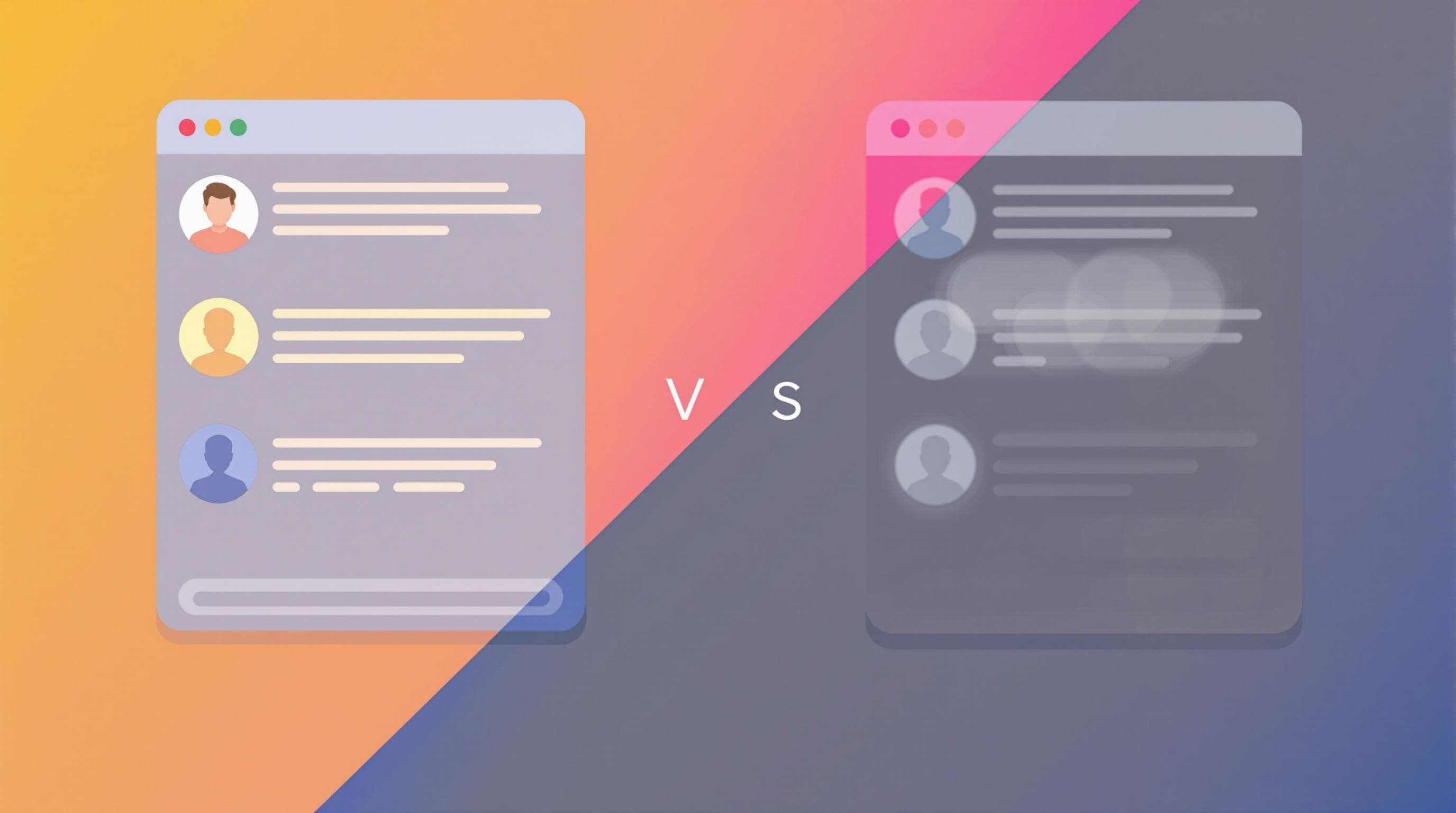Dealing with comments on your Facebook page can feel like navigating a minefield. Positive feedback is great, but what about negative reviews, spam, or off-topic remarks? The temptation to simply hit 'hide' is strong, offering a quick fix to maintain a pristine brand image, leading many to consider facebook hiding comments as a primary tactic.
But is hiding comments always the best strategy? While it removes unwanted content from public view, it doesn't erase the sentiment behind it. Over-reliance on facebook hiding comments can backfire, potentially damaging trust and silencing valuable, albeit critical, feedback. Understanding the nuances is crucial for effective community management.
This post explores the complexities of facebook hiding comments, weighing the perceived benefits against the potential risks to help you make informed decisions for your brand's social media presence.
Why Businesses Consider Facebook Hiding Comments
It's understandable why the 'hide' button looks appealing. Certain situations seem to warrant its use:
- Spam and Scams: Comments containing malicious links, promoting unrelated products, or attempting scams clearly detract from the conversation and can harm your audience.
- Hate Speech and Harassment: Abusive language, personal attacks, or discriminatory remarks violate community standards and create an unsafe environment.
- Irrelevant or Off-Topic Content: While less harmful, comments completely unrelated to the post can derail productive discussions.
- Posting Private Information: Comments revealing personal data (yours or others') should be hidden immediately to protect privacy.
In these clear-cut cases, hiding the comment is often a necessary step in maintaining a healthy and safe online community.
The Hidden Costs: Risks of Overusing Facebook Hiding Comments
Hiding comments, especially legitimate criticism or negative feedback, carries significant risks:
- Erosion of Trust: Users notice when comments disappear, especially their own. This can lead to accusations of censorship and make your brand appear untransparent or unwilling to face criticism.
- Damaged Brand Perception: Consistently hiding negative feedback suggests you have something to hide or don't value customer opinions. This can be more damaging in the long run than the original negative comment.
- Missed Opportunities for Engagement: Negative comments, while uncomfortable, are opportunities. They allow you to address concerns publicly, demonstrate excellent customer service, and gather valuable feedback for improvement.
- Fueling Negative Sentiment: A user whose comment is hidden might become more frustrated and take their complaint to other platforms, potentially amplifying the negativity beyond your control.
Hiding criticism doesn't solve the underlying issue; it often just sweeps it under the rug, where it can fester and grow.
Strategic Alternatives to Facebook Hiding Comments
Instead of defaulting to hiding comments, consider these more transparent and engaging approaches:
- Respond Professionally: Address negative feedback directly and politely. Offer solutions, acknowledge mistakes, and show empathy. This turns a negative into a public display of good customer service.
- Establish Clear Community Guidelines: Create and pin a post outlining acceptable behavior and content on your page. This allows you to justify removing comments that violate these specific rules.
- Take the Conversation Offline: For complex issues or sensitive information, politely ask the user to send a direct message or email to resolve the matter privately.
- Use Moderation Tools Wisely: Implement profanity filters and keyword blocking for overtly offensive terms, but use them judiciously to avoid accidentally silencing legitimate discussion.
When Facebook Hiding Comments Might Be Necessary (and How to Do It Right)
While engagement is preferred, hiding is justifiable for comments that clearly violate your established community guidelines or fall into the harmful categories mentioned earlier (spam, hate speech, privacy violations).
If you must hide a comment, do so consistently based on your guidelines. Avoid hiding comments simply because they are critical or express an unpopular opinion. Remember, the goal is moderation, not censorship.
Streamlining Comment Management for Better Engagement
Manually monitoring and responding to every comment, especially for active pages or businesses running ad campaigns, is incredibly time-consuming and prone to inconsistency. The sheer volume can lead to delayed responses, missed opportunities, and the temptation to overuse the 'hide' button just to keep up, making effective management beyond simple facebook hiding comments difficult.
This is where leveraging technology can make a significant difference. Platforms designed for social media management can help streamline this process, ensuring timely and appropriate interactions.
Consider ReplyZen.ai, an AI-powered platform specifically built to automate comment management and engagement on Facebook and Instagram. Instead of manually sifting through comments and deciding whether to hide or reply, ReplyZen.ai offers intelligent solutions:
- AI-Powered Moderation: Automatically identify and handle spam, inappropriate language, or predefined negative keywords based on your rules, reducing the need for manual hiding.
- Context-Aware AI Responses: Generate relevant, human-like replies to common questions or comments, ensuring prompt engagement even when your team is offline.
- Efficient Workflow: Manage comments across multiple Facebook and Instagram accounts from a single dashboard, saving significant time and effort.
- Sentiment Analysis: Understand the overall tone of conversations, helping prioritize responses and identify potential issues early.
For e-commerce brands managing post-purchase inquiries, performance marketers optimizing ad spend based on feedback, or agencies handling multiple client accounts, ReplyZen.ai provides the tools to manage comments effectively without resorting to excessive hiding. It helps maintain transparency and fosters positive engagement by ensuring comments are addressed appropriately and efficiently.
Conclusion: Transparency Over Silence in Facebook Comment Management
Facebook hiding comments is a tool, not a strategy. While necessary for removing genuinely harmful or spammy content, overuse can damage credibility and stifle valuable conversations. Prioritizing transparent engagement, responding professionally to criticism, and setting clear guidelines are generally more effective long-term strategies.
Managing social media comments effectively requires time and consistency. Tools like ReplyZen.ai can empower businesses to handle comment volume efficiently, automate moderation tasks, and focus on building genuine connections with their audience on Facebook and Instagram, turning potential missed opportunities into moments of positive engagement.



